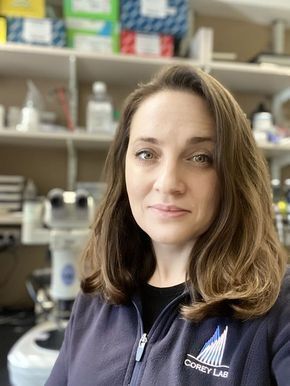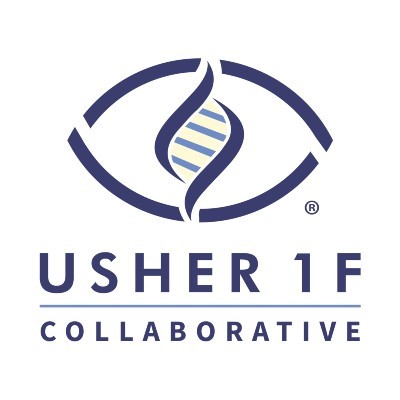
Dr. Maryna Ivanchenko
Interview with Dr. Ivanchenko
What led you to a career in ophthalmologic research?
I have always been interested in helping people, and what could be more important than helping someone to see? My parents were both physicians, so I grew up in a household where medicine was often a topic of conversation. As a child, I have always been drawn to science and medicine, so when I decided to become a doctor, it was a natural choice. During the years of medical education, I have always been interested in the human eye and its ability to see. I was particularly fascinated with how our vision works and how diseases can affect the eyes and vision. Ophthalmology is a challenging specialty that requires both a great deal of knowledge and surgical skills but it is also incredibly rewarding and satisfying. One day I was asked by a little patient if I could fix her eyes. She suffered from congenital retinal degenerative disease, which causes blindness, and there was no cure for it. As doctors, we don't always know what causes people to lose their vision; more importantly, we don't know how to treat it. This question inspires me to dedicate myself to research in order to better understand the basis of sensory diseases, with the ultimate goal of developing therapies to restore vision and help these children in the future.
What have been some highlights in your career so far? Can you explain how your work applies to Usher Syndrome?
I was fortunate to receive my medical degree with honors from one of the top medical schools in Ukraine - Dnepropetrovsk Medical Academy. While being a medical student, I was working at the bench and was thrilled when I was given the opportunity to work in a lab and conduct research. Exposure early on to laboratory work rather than just reading about it was very important. These were small projects, but I was fascinated by the science behind medicine and wanted to be at the forefront of discovery. Based on my academic and research merit at medical school, I was awarded by Scholarship of the Ukrainian Parliament; overall, it was an incredible honor that has opened up many doors for me.
After finishing my residency in ophthalmology, I moved back to my hometown and started practicing as an ophthalmologist. However, in a few years, I was approached by the Department of Histology at my alma mater as a faculty member to teach "Histology" to medical students. There I began a concurrent Ph.D. program where I gained unique expertise in high-resolution electron microscopy. In addition to teaching, I was also a staff physician at the Dnipropetrovsk Regional Clinical Ophthalmological Hospital, where I received training in eye microsurgery and pediatric ophthalmology, and participated in clinical research.
In 2016 I had an opportunity to join the laboratory at Harvard Medical School of Dr. David Corey, who was developing gene therapies for a similar sensory organ—the inner ear. Here, I quickly gravitated to a project on Usher syndrome, which causes degeneration of both the eye and ear—a perfect match for my clinical skills and scientific interests. One of my goals is to design a therapy for Usher patients who are waiting for the answer about whether their eyes can be fixed.
This work has been challenging. In addition to my previous skills in eye surgery, histology, and electron microscopy – these parts were easy, I had to master molecular biology, gene therapy vector design, in vitro testing of therapeutic proteins, surgical delivery of vectors to the inner ear, and physiological testing of inner ear function. I have worked on three different strategies to treat particularly Usher 1F, and testing them in different species –zebrafish, mice, nonhuman primates, and human organoids. It has been incredibly rewarding to see this work succeed and to be able now to think about how to bring this to the clinic.
So far, participate in groundbreaking research that has a real impact on patient care, collaborate with leading researchers from around the world, find new treatments and techniques that can help improve ocular health, be able to help develop some new technologies that could be used some days in ophthalmic practices has been an incredibly rewarding experience. I am proud of the work that our team has done and am excited to see what the future holds.
What would it mean for you as a scientist to help with the discovery of a treatment for vision loss?
As a scientist, helping with the discovery of a treatment for vision loss would be an incredible achievement and a great honor. It would be fulfilling to know that my work is making a difference in the lives of thousands of people who suffer from vision loss. It would also be an incredible opportunity to collaborate with other scientists and learn from them as we work together towards a common goal. Finally, it would be a great way to be able to look back and say: "I was part of something that made a difference."
Can you tell us about growing up in Ukraine?
I was raised in a large family with five children in a small town in the center of Ukraine during a period of turmoil and transformation. It was a time of great uncertainty and change in Ukraine, but at the same time, a time of hope and optimism for people in just born country. Despite the challenges, my parents faced those days, I had the privilege of growing up in a family that valued education and was able to provide me with the opportunity to learn and explore. My elementary and middle school years gave me a strong academic foundation, and when I was 15 years old, my older brother and I were accepted to the Scientific Medical Boarding High School in Dnipro, a school for talented students with a focus on science. We left our parents' home. I had to learn how to take care of myself and manage my own life, which was both daunting and exhilarating. It was also a time of tremendous growth and learning. There, I participated in science fairs and got my first exposure to laboratory work. This early experience in laboratory work was essential and really inspired me.
As a woman, were there any extra challenges pursuing your MD/PhD?
When the Soviet Union was dissolved, traditional gender roles were still prevalent, which limited the educational opportunities available to women. I believe that there has been a significant improvement in the situation for women in Ukraine since then. In the medical academy, when I was a student, I did not experience any challenges as a woman. In fact, there were more females in my class than males. However, my life changed after having a child because my priorities shifted. I had my son when I was in the second year of my residency. I was a pretty independent person and was used to doing everything on my own schedule, which changed when it was no longer about me only. I needed to somehow balance between family and carrier, and it is sometimes challenging in the community with patriarchal norms.
I can't say that there is no gender bias in Ukraine, women face similar problems as in other European countries: women often have to navigate a male-dominated field, work twice as hard as men to receive the same recognition in work, have confront discrimination and prejudice. Additionally, being a working mother and managing the pressure of expectations and competition while finding time for self-care and self-advocacy can be difficult. I think I was fortunate to be in a supportive environment that helped me to overcome these difficulties, but I am well aware that many women face similar disadvantages. Despite the barriers that exist, many women in Ukraine still persevere and manage to become successful doctors and scientists.
When did you leave Ukraine and why?
Professional development for me is very important. I strongly believe that clinicians and scientists are required to be lifelong learners in order to keep up with the latest advances in medical technology, treatments, and medications, it is essential for medical professionals to stay up-to-date on the latest research and developments in the field.
So when I received my doctorate degree in early 2016, I started looking to expand my research experience further, develop new skills, gain expertise, and learn from world-renowned experts in the field.
It was a great honor for me to join Dr. David Corey's laboratory at Harvard Medical School, where I have the opportunity to learn from some of the best and brightest in the field and be part of a community of researchers and clinicians dedicated to improving the health of individuals and populations. The resources and technology available at Harvard allow me to access cutting-edge research and create unique opportunities to help people in my native country. I am excited to be a part of such an esteemed institution and explore the possibilities that lie ahead.
What do you enjoy doing in your spare time?
In my free time, I enjoy playing the piano as it helps me relax and have fun. I also like biking and hiking, both of which are excellent forms of exercise and allow me to enjoy the outdoors. Painting is another activity that I find very relaxing. I am fortunate to have a wonderful son and many great friends with whom I have shared many enjoyable moments. I am grateful for all of the wonderful experiences we have had together.
